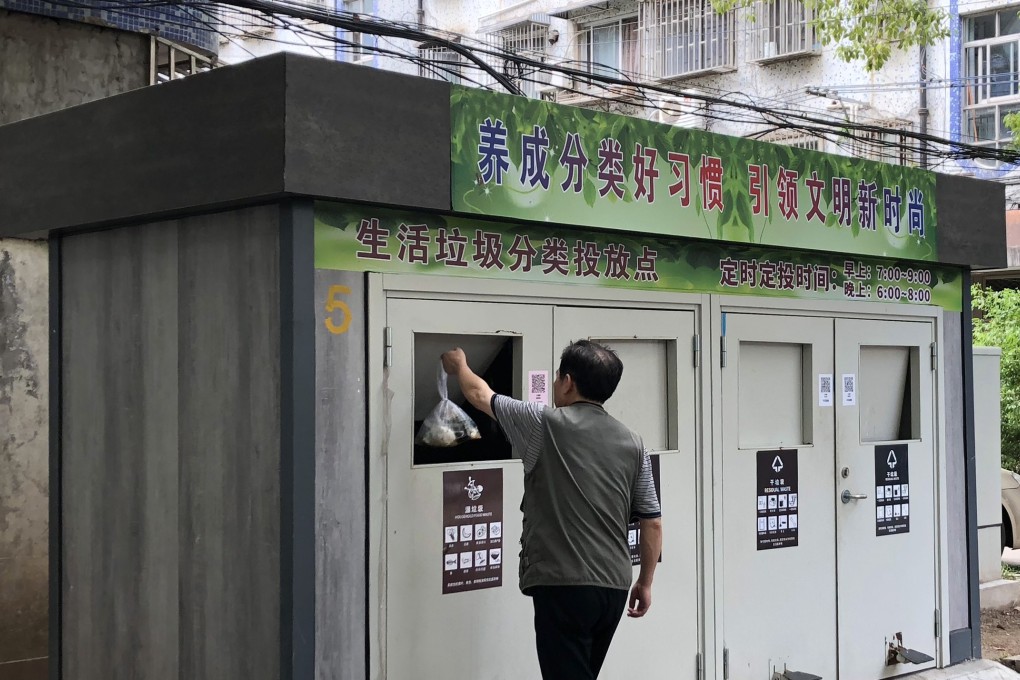Stumped by the new recycling rules in Shanghai? There’s hundreds of apps for that
- Applications and services have sprung up as residents try to work out which bin to throw their rubbish into to avoid fines
- They can be used to find out, for example, if cabbage leaves are classified as wet or dry waste

Shanghai’s strict new waste-sorting rules have left many residents scratching their heads over which bin to throw their rubbish into, giving rise to hundreds of apps to help them find the answer.
In the first week alone, 190 fines were issued as a record 17,800 officers from Shanghai’s Urban Administrative and Law Enforcement Bureau hit the streets to enforce the rules.
It has been a popular topic on social media, with hashtags such as “Strictest Shanghai waste policy”, “Waste sorting”, and “Is this dry or wet waste?” trending on Weibo, the Chinese equivalent of Twitter.
Apps and programs have meanwhile appeared on social network WeChat, Alipay and Apple’s app store. On WeChat there are at least 280 unique waste-related apps, while Apple’s app store has 130.
A spokeswoman for Alipay said more than 60 independent app developers had applied to provide waste-related programs on the platform, bringing in more than 1 million new users within three days of the policy’s launch.